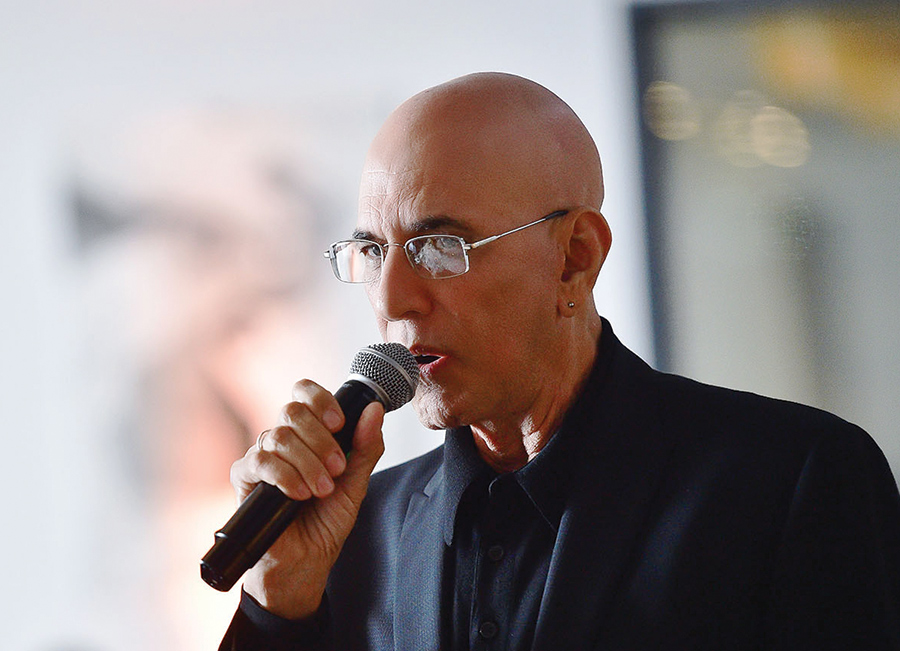Getting to Know a Trustee
Neal Bermas, Ph.D.

eople — no matter their circumstances — have “all kinds of possibilities.”
It’s that belief that has fueled Dr. Neal Bermas’ professional success across a wide range of fields. And it’s the kind of optimism that has empowered Dr. Bermas to absolutely transform the lives of hundreds of impoverished young Vietnamese adults.
STREETS International, founded by Dr. Bermas in 2009 after witnessing the endemic child poverty that existed on the streets of Vietnamese cities, is a no-cost culinary and hospitality training program offered to disadvantaged and vulnerable youth mired in poverty. The program has now placed 300 trainees in jobs with hotels and restaurants across Vietnam and at resorts around the world, including Dubai, Maldives, Cambodia and Singapore.

What do you find most rewarding about what you’re doing at STREETS?
“One can’t almost describe the reward in knowing a youth – perhaps an orphan, or a person that’s been trafficked and all of the horror that goes with that, or just terribly poor – and the satisfaction that comes from meeting and being touched by those young people and then, not quite two years later, to see the dignified lives that they’ve started to live. Being economically self-sufficient and having rewarding careers. It’s just remarkably satisfying.”
Aside from the amazing work you’ve done with STREETS, what personal accomplishment are you most proud of?
“I’m very proud of my Ph.D. I was not an especially good student. At a certain stage, school just wasn’t that important to me. In fact, I flunked out of my first year at college. I worked hard to get back and do well. Completing my doctorate at Brandeis is perhaps the single most important thing that’s made my career fulfilling and successful. I relished learning about the tools of analysis and inquiry, and how important that was to inform discussions.”
Do you have a motto?
“I never forget that we are all equal — that we all have a lot of possibility, and we all make lots of mistakes, and that the important thing is to learn from them.”
Your dream job while growing up?
I wanted to be a musician. My main instrument all through school was the trumpet. I studied with a famous trumpet player Jimmy Maxwell, who was the lead trumpet on “The Tonight Show” band with Doc Severinsen. (Mr. Maxwell) invited me to sit and play in the band, but my parents didn’t think it was a great idea because I was still in high school.” (Editor’s note: Jimmy Maxwell was the featured trumpet soloist on ‘’The Godfather” soundtrack.)
What was your first job?
“Technically, my first job was delivering Newsday off my bicycle in Great Neck. My second job was as a movie theater usher at The Squire in Great Neck and The Playhouse Theater across the street … I ate all the popcorn I could stuff in my mouth.”
Describe what the COVID-19 quarantine was like for your family in Vietnam.
“During the first year, the country did not allow inbound visitors, so it was totally isolated. Nobody got COVID, and we enjoyed travel across Vietnam. The pandemic broke out in Vietnam the second year — to a country totally unvaccinated. We were locked down for five and a half months. One person per household, on one day a week could go to a market that the government said we could go to. And unfortunately for us, that market was in our building. So, we couldn’t even go out for a walk to the market. When I say it now, I can’t believe we lived through it.”
New York City remains my favorite. I am a flag-waving New Yorker. It’s why I’m back living in Manhattan; I wanted my daughter to have the experience of going to school in New York.
What is it that appeals to you most about St. Joseph’s University, New York?
St. Joseph’s has all the things that resonate with me: the liberal arts tradition, the value orientation, a sense of importance for social justice — a motto that actions are important, not just words. There is a connectivity across the University community that just feels really good.
Early impressions of St. Joseph’s President Boomgaarden?
What a gem of an academic and human being. He’s a real renaissance man.